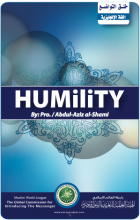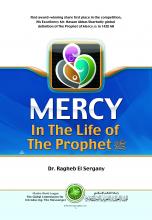The Prophet of Mercy Website
Muslim World League - Global Commission for Introducing the Messenger
A few days had not passed since the prophet's (sallallahu `alaihi wa sallam) death when Islam became entangled in a fierce struggle with paganism, which suddenly came back to life, and Christianity, which controlled the north of the peninsula, prevented anyone from entering Islam and stopped its spread by force. The desert had not seen the like of these violent battles during the lifetime of the prophet himself. The battlefields were wielder, the costs more and the losses greater.
But the men whom the prophet had brought up with knowledge of the Truth and sacrifice for it were sincere in their actions to Allah and bore the heavy burdens that were thrust upon their shoulders as gallant heroes. They broke the backbone of paganism in the peninsula, squeezed out its lifeblood and destroyed it forever. They routed the Romans at the borders where the latter had spread their arrogance. Then they returned to Medina not to relax but to spread out in the then populated world in a systematic order and by inspiration from a foolproof law. Within a few years Islam had filled land and sea, ear and eye.
Now after fourteen centuries have elapsed since that glorious era. Islam is no more ruling its Ummah, not to speak of steering the world to a land worth mentioning or to goodness worthy of thanks. The other religions are living on the brink of death, the existing civilizations do not allow religion to take hold of their reins. Paganism in India and the Far East as well as other places still has a great sway over the major part of the lives and behaviour of the masses. Judaism is segregating its flock from the world in order to implant in their hearts hatred for mankind and to sweep away the greatest benefits for Israel by playing upon the split within the rants of the Muslim ranks. Christianity is like a creeping vine in the equator: it depends for its survival on the adoption of the prevalent philosophies and support of the ruling regimes in order to guarantee life (and what a life!) for its primary tenets of Trinity and vicarious sacrifice.
The Muslims have been stained with the pollutions of deviations and adherence to shells and rituals. The vices of weakness and ignorance have relegated them to a condition similar to what the Jews and Christians had been in during the era of prophethood and the rightly guided caliphs. Only an insignificant minority of them remains up to today fighting Jahiliyah and holding fast to the Truth. If there is hope in the fact that Islam has remained preserved from the theoretical point of view in its two major sources, the Qur'an and the Sunnah, then this preserved knowledge can never make action superfluous. Nevertheless, it is to be noted that those who do correct work for Islam are encountering severe opposition from various other fronts and I mean the fronts which have opposed its spread since the time of its inception fourteen centuries ago and have never cooled off for one day in their enmity towards it.
Someone may ask whether the world today is in need of Islam. Our answer to that is if the world is in need of knowing Allah and preparation to meet Him and give an account for what was done in this earthly life them it must have Islam. Material advancement cannot substitute one bit for adherence of these great realities. One may say: but there are people who do not believe in any god or in the Hereafter and there are others who believe in these things but different to what Islam teaches so let the people follow their own beliefs. Our answer to this is: let the people believe what they will but the blind do not have the right to dig out the eye of the one who sees or strangle him because he sees what they do not! They must leave him to walk with the guidance of his eyes and they must leave him also to describe what he sees or expects on his way. Whoever whishes to follow him without being forced has the right to go with him otherwise he should leave him alone and not put obstacles in his path. This is all that Islam asks for.
The mischief-makers hate Islam because it is the Truth with a voice which defends itself and proclaims whatever it contains and refuses to hide or keep silent. This characteristic of Islam, the characteristic of enforcing the Truth and decrying falsehood, has annoyed its adversaries and made them fabricate accusations against it. Thus, if it refuses to compromise it is the attacker and if it refuses to die under the plots of its enemies it is being spread by force! This is the secret of the tale which is told that Islam was spread by the sword, though Islam only unsheathed the sword in order to save itself from the danger of the mob and the brigands. Had it been left without intrigues, it would never have lifted a knife and would have contended itself with the use of the tongue in place of the sword. Yes, in this respect it is very firm. What else could be expected of it when it has to confront enemies who are spurred on by the haughtiness and prejudice of long centuries as well as erring ways which hide behind thick jungles of men and arms? Had it not been for this firmness, Islam's moral and scientific principles would not have remained intact to this day. Those religions before it which had weakened were dragged by their enemies in a hideous manner from their roots and have never been able to return safely to them. As for Islam, today you find it, if not in its adherents, then at least in its book.
You may think that you have studied the life of Muhammad by following his history from birth to death but this is a grave mistake. You will never really understand the Sirah unless you study the noble Qur'an and the purified Sunnah. The amount that you derive from these will tell the strength of your connection with the prophet of Islam, sallallahu `alaihi wa sallam.
Source: Al-Ghazali, Muhammad, Fiqh us-Seerah, IIPH, 1997
******






